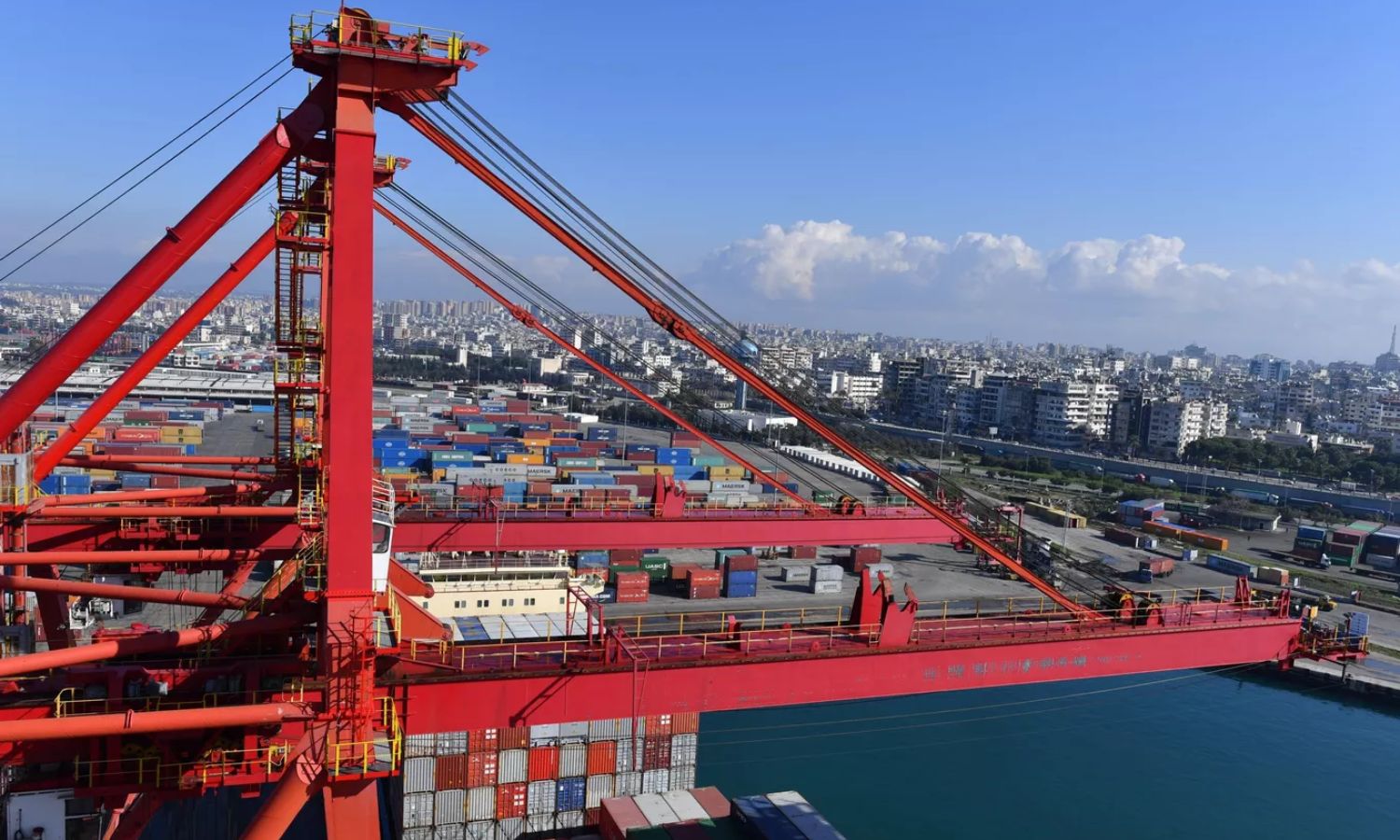



The Ministry of Economy and Foreign Trade in the Syrian regime’s government announced the import and export figures for the public and private sectors during the year 2023.
According to the ministry’s statement issued on the evening of Wednesday, January 10, 2024, the year 2023 ended with a 27% decrease in the value of imports for both the public and private sectors compared to 2022, with a total value exceeding 3.2 billion euros.
The ministry attributed the decrease in imports to the government’s focus on a “rationing policy” limited to the import of essentials in order to reduce the demand for foreign exchange.
At the same time, the percentage of exports increased during 2023 compared to the previous year by 60%, with a total value of exports for both the public and private sectors surpassing 900 million euros, according to the statement.
The ministry reported that the increase in exports resulted from the rise in exported quantities and the export value of materials such as phosphate, clothing, shoes, medicines, and aromatic products like cumin, as well as some agricultural products like almonds, despite a decrease in the quantities of certain types of exports compared to 2022, such as vegetable exports, anise, stones, sand, and gravel.
Shadi Jawhara, the Assistant Minister of Economy for Foreign Trade Affairs, stated today, Thursday, that the Ministry of Economy’s policy regarding imports is to secure the necessities of industrial and agricultural production and to increase employment opportunities to reduce the trade balance deficit and the demand for foreign exchange.
Since 2018, the regime’s government has removed support for goods and energy for broad segments of Syrians and specified support for other segments within a mechanism called the “smart card.”
The allocation of gasoline was the first material included in the subsidy card, followed by diesel, gas, and many food items, with specific allocations for Syrian families on a monthly basis under the title of “rationalizing the consumption of subsidies.”
Since the beginning of February 2022, the Syrian government has started to remove “government support” from a group of smart card holders according to specific categories and criteria, including having a commercial record with one of the family members or, a car with specific specifications, and other criteria.
The Syrian government has adopted a policy of “substituting imports and supporting local products,” creating a situation of monopoly for some essential materials in the market. Yasser Akreem, a member of the board of directors of the Damascus Chamber of Commerce, previously stated that the government is responsible for creating crises and price hikes and added that “the decision not to allow the import of some goods, including vegetable oil, to anyone who wishes from the merchants and to restrict it to specific individuals is very negative.”
Regarding foreign trade, traders and industrialists complain about the laws of the Central Bank of Syria (CBS), which has established the “import financing platform” to limit the outflow of foreign exchange.
Akreem complained in November 2023 that the import financing platform has not yet improved the markets and that the business sector, including traders, importers, and industrialists, suffer from the restrictions of the platform and long waiting periods, creating “widespread confusion” due to cost hikes, exchange rate fluctuations, and shortages of goods and commodities due to the lack of permission to import sufficient quantities.
On December 5, 2023, Akreem stated that the number of commercial records in the Ministry of Internal Trade and Consumer Protection is about 110,000, while the active records currently within the Damascus Chamber of Commerce are about 7,000 records.
Akreem criticized the decline in the number of traders, representing a loss to the economy, pointing out the existence of laws that have contributed to harming traders, including restricting the movement of the merchant’s capital due to the presence of the “platform,” and described the current situation of the trader in Syria as “at its worst” due to the government’s failure to support him as required, adding that the markets are in a state of “stagnation” due to the significant disparity between the income of the employee and the value of the exchange rate, which does not correspond to the income.
if you think the article contain wrong information or you have additional details Send Correction